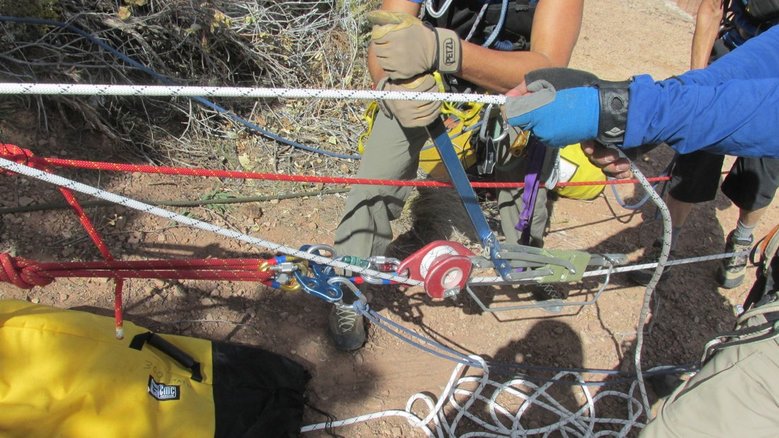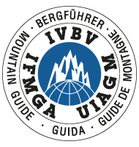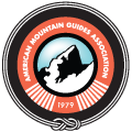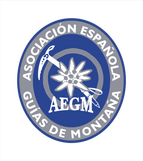technical rescue
Rescue/Fire Search and Rescue (SAR) Technical Rescue Techniques
In August 8th 1786 two Chamonix residents, Dr. Michael G. Paccard and his guide Jacques Balmat became the first people to reach the summit of Mont Blanc (15,781 feet), unofficially sparking modern mountaineering. This climb marked the beginning of alpinism. Through the years, climbers conquered the highest summits in the Alps and then spread alpinism to the rest of the planet. With thousands of mountaineers climbing peaks every year, rescue teams in Europe had to improve and develop efficient techniques to use in the mountains. In 1948 the International Commission for Alpine Rescue (ICAR) was founded in Europe, setting the standards for alpine rescue and mountain medicine.
Alpine technical rescue has to be light and efficient. Summit Ridge Guides’ goal is that small rescue teams, with the right equipment and the right techniques, can perform a rescue faster and safer than large rescue groups in difficult terrain. We follow the protocols of 2 of the 5 top best professional alpine rescue teams in the world (score by the ICAR): the Gendarmerie-PGHM (Chamonix-France) and the GREIM (Spain) to bring you the most efficient and modern technical rescue techniques. We also follow the protocols of the NFPA 1670 for urban rescue techniques.Alpine technical rescue is light, using small teams performing techniques that are very effective and fast. The equipment is light and secure, designed to perform and complete the rescue with minimal effort outside the city limits.
JUST LET US KNOW!!
Alpine technical rescue has to be light and efficient. Summit Ridge Guides’ goal is that small rescue teams, with the right equipment and the right techniques, can perform a rescue faster and safer than large rescue groups in difficult terrain. We follow the protocols of 2 of the 5 top best professional alpine rescue teams in the world (score by the ICAR): the Gendarmerie-PGHM (Chamonix-France) and the GREIM (Spain) to bring you the most efficient and modern technical rescue techniques. We also follow the protocols of the NFPA 1670 for urban rescue techniques.Alpine technical rescue is light, using small teams performing techniques that are very effective and fast. The equipment is light and secure, designed to perform and complete the rescue with minimal effort outside the city limits.
- Urban rescue is heavy, with the use of more personal. The equipment is heavy, designed for big diameter ropes (NFPA standards). The techniques are those designed in alpine rescue but using heavier equipment (NFPA standards)
JUST LET US KNOW!!
Basic Alpine Technical Rescue (light rescue)
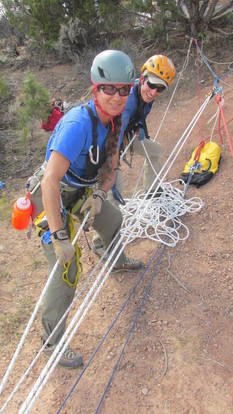
This is a 1 day class to introduce you to the backcountry and just gain access to your victim.
Some of the topics of the class are:
Some of the topics of the class are:
- Safety
- Basic knots
- Natural and permanent anchors
- Belaying
- Descending
- Ascending with mechanical ascenders
Level I Alpine Technical Rescue
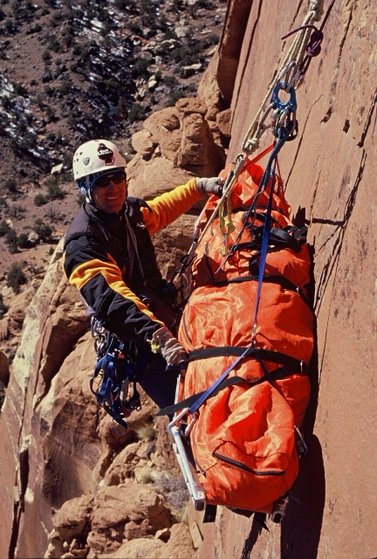
This is a 2 days class to introduce you to the backcountry, gain access to your victim and perform a basic extrication. Some of the topics of the class are:
- Safety
- Basic knots
- Natural and permanent anchors
- Belaying
- Basic rock climbing
- Descending
- Ascending with mechanical ascenders
- Basket set-up
- Rigging the basket using pulley systems
- Lowering the basket
Level II Alpine Technical Rescue
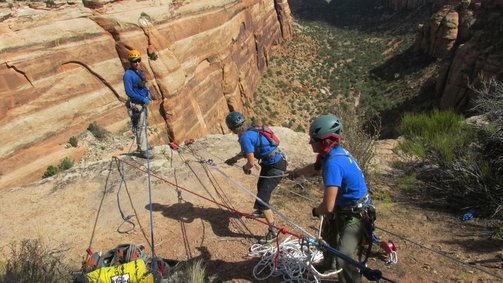
This is a 3 days class oriented to those who need the right skills to perform rescues in the backcountry. You will learn basics techniques to access your victim and extricate them from the site. Some of the topics of the class are:
- Safety
- Basic knots
- Natural and permanent anchors
- Belaying
- Basic rock climbing
- Descending
- Ascending with mechanical ascenders
- Pick-offs
- Basket set-up
- Vertical and horizontal basket transfer
- Low angle terrain evacuation.
- Rigging the basket using pulley systems
- Lowering the basket
- Tension and high-lines.
Level III Alpine Technical Rescue Advance Techniques
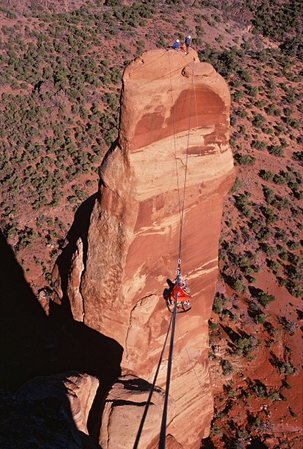
This is 2 days class where you will learn advance techniques that you can use during your rescue activities. You have to have completed the level I class prior to sign to the level III or have experience with that program. Some of the topics of the class are:
- Use of the rope winch Tractel Evak 500 for raising and lowering the basket
- Counter-weigh raising and lowering techniques
- Tension and high-lines
- Overhand and roof rescue techniques
all Course informationPlace: Grand Junction area
Ratio: 1:6 Price:
What we provide: IFMGA/AMGA certified mountain guide, climbing equipment, ropes, harnesses, helmets, first aid, guiding permits. What we don’t provide: water, snacks, personal transportation, and personal medical insurance. Season: all year around Prerequisites: None. |
EQUIPMENT LIST:
|
